We thought we were losing Nora to secrecy, whispers, and a man twice her age who just seemed to slip into her life wordlessly. Every gift, envelope, and evasive smile hurt us more. And when neighbors began to gossip, our dread grew unbearable.
Martin was ready to storm out, confront the man face-to-face, and demand answers. I begged him to wait. Our daughter’s life felt balanced on a knife’s edge, one wrong move enough to shatter her trust. But even as we argued, Nora’s eyes pleaded: “Not yet. If you knew now, it would ruin everything.”
What could she possibly mean? Why was she protecting him with such ferocity when every instinct told us he was the danger? We had built our worst-case scenarios in silence, yet none of them fit the strange, deliberate secrecy she wrapped herself in. The unknowing was the unkindest cut of all.
The first hint came on a rainy Thursday when Nora didn’t come straight home from class. We thought nothing of it. She’s nineteen, after all. All teenagers, around that age, technically an adult, had the right to hang out with friends, let off steam, and do whatever it is that teenagers her age usually do.

But it hadn’t started there. The first signs were subtle. Nora came home with her face glowing with some inner light we couldn’t place. She began brushing off questions, offering vague excuses, her smile deflecting where once it had invited. Slowly, we understood that something or someone was shaping her.
We instinctively knew that a “boy” had to be involved. Nora was pretty and smart for her age. But we were her parents, and our natural urge was always to protect her from hurt or worse. In fact, we weren’t entirely inexperienced in the department of romance when it came to her either.

Two years earlier, Nora had dated a boy. She had been 17, and at 19, he was brash and impulsive, caring more about rebellion than respect. The relationship, thankfully, burned its course, but not without leaving her a little scarred and shaken. We thought she had learned her lesson and was glad to put the episode behind us.
And so, this time, we trusted her instinct. After all, our daughter was older and wiser now, and already burned once by the fire of passion. She would choose more cautiously this time and take her time before doing anything rash. But then, when Martin saw her at the café, seated across from a man twice her age, he went cold instantly.

He described the man later in clipped words: graying, receding hair, steady posture, and careful voice. Not a teacher, not a fellow student, and certainly not anyone we knew. “Forty, maybe more,” Martin said, his eyes hard. My breath snagged. Our daughter with a man like that? It was impossible to imagine. Her life was only beginning!
We waited for her to return that night, nerves stretched taut like wire. Nora’s face was glowing with some secret satisfaction. When I asked who she had been with, she gave the kind of smile only teenagers learn to perfect, gentle, but unreadable. “You wouldn’t understand, mom,” she said softly.

At first, I wanted to laugh it off. A study partner, maybe. A mentor. But Martin wasn’t buying the theory. He paced the kitchen, muttering about boundaries, propriety, and predators. I tried to hush him, but the knot in my stomach agreed. Nineteen was still so young!
When we pressed her again, she sighed with theatrical patience. “He’s someone important to me,” she said. “That’s all you need to know right now.” Important. The word cracked something in me. How could she say that and not explain further? “Important” should have been reserved for us.

We tried gentle coaxing. “Is he a professor?” Martin asked. “A counselor?” I added, hoping to slot this stranger neatly into some harmless category. Nora only shook her head. “You’re imagining it all wrong,” she murmured. But she refused to tell us what the “right” thing was.
At night, Martin and I whispered in bed like conspirators. He believed the worst, convinced this man was exploiting her youth and naivete. I wanted to believe otherwise, but even my optimism had limits. Why the secrecy, if there was nothing to hide? Silence is rarely ever innocent.

The next weekend, she left in a hurry, hair brushed too carefully, her tote bag swinging with determined weight. “Study group,” she declared vaguely, eyes sliding away from mine. I watched from the window as a car pulled up. It was sleek and understated. And I caught a glimpse of him again.
He didn’t look like the villains from parental nightmares. He looked respectable, if anything. The easy way he carried himself, the way he opened the car door for her—it was the behavior of someone practiced at appearing safe. If this was posturing, then it was worse!

We didn’t confront her that night. Instead, we sat across from each other in the kitchen, bowls of soup cooling between us, and unspoken words swirling like steam. Every clink of the spoon was an accusation. Every silence screamed louder than words. We were losing her.
Martin was all for marching out, finding this man, and demanding explanations. “If he’s decent, he’ll come introduce himself,” he argued. I shook my head. “She’ll see it as betrayal,” I whispered. “And if his intentions aren’t good?” His voice trembled. Neither of us wanted to answer that.

Nora grew lighter, somehow, in those weeks. She carried herself with a new certainty, as though she’d discovered a compass the rest of us couldn’t see. That confidence frightened me more than anything. Confidence can be intoxicating and blinding, especially when misplaced. And what if he was the one feeding it?
We tried again, softer this time. “Sweetheart, we only worry because we love you,” I told her. She smiled faintly, almost pityingly. “I know you do. But this isn’t something you can control.” The last word stung. Parenting was always about balance, but had we lost it? Did our part in Nora’s life now boil down to “control”?

Martin grew restless. He scrolled through her social media, searching for clues. But there was nothing. No photos, tags, or hints of him could be found. It was worse than finding proof, because it was a deliberate omission. Who erases someone so thoroughly, unless they have reason to remain hidden?
We knew better than to label Nora cruel or careless; she was such a cautious person—even as a child. She still made dinner with us, laughed at small jokes, and left Post-it notes on the fridge when she’d be late. But now each of her gestures felt like a bandage over a festering wound. She was close, yet slipping further away.

As a child, Martin had always been her hero! She clung to her daddy and took his word for the gospel truth. Of course, as girls grow up, that bond inevitably changes, but she still loved her father. I always believed that there was a special connection between them that held no space for me, her mother.
We debated whether to forbid her. Martin argued for it, clenching his fists. “She’s nineteen,” I reminded him. “Not a child we can ground.” “Nineteen isn’t an adult either,” he shot back. He wasn’t wrong. We were trapped in the gray space between wanting to protect and control her.

When I asked her, point-blank, if this was a romantic relationship, she laughed. Her face was unreadable, and perhaps, a hint of sadness around her eyes unsettled me. “You’re doing it again. Imagining the worst,” she said. And yet she gave us nothing more. We had to make do with this vague denial, if that was what it was.
I replayed my own youth, how secrecy once thrilled me, and how my parents’ questions always sounded like accusations. Were we turning out to be our parents? Was she simply guarding her independence? Or was there something more in her silence? Memory didn’t comfort me; it only sharpened my dread.

Martin’s suspicion grew heavier by the day. He lingered by the window at dusk, waiting for the shape of her return. He tracked the times she was late, and the hours unaccounted for. “This is how it starts,” he muttered darkly, as though rehearsing and preparing for a tragedy.
And I, though softer and less explosive than my husband, was no less scared. My daughter’s future seemed tilted into a space we could not reach. Each secret meeting with the man she refused to explain to us felt like a door shutting, creak by creak, until we were left outside, clutching keys that would never fit the lock again.

Our fears grew with every passing day. Nora returned later and later, sometimes with envelopes tucked discreetly into her tote. Once, she carried a slim hardback book with a leather cover, clearly new. Another time, it was an elegant fountain pen. Admittedly, thoughtful gifts, but not ones a nineteen-year-old usually receives.
When I asked her where the pen came from, she only said, “It was a gift,” before retreating to her room. My chest tightened. A gift. So casual, and so final. Who was this man to her, that he could slip into life and belong in it so seamlessly?
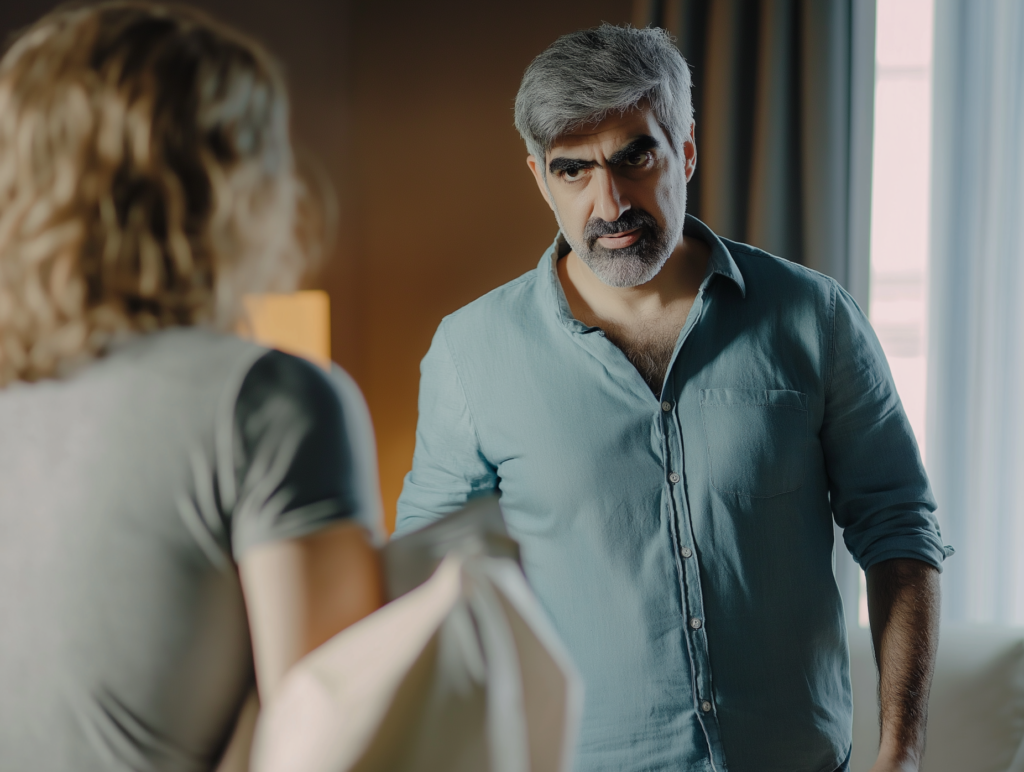
The envelopes bothered Martin most. He watched her carefully, noting their crisp edges and their deliberate handling. “That’s not homework,” he muttered one night. “It’s something official.” His tone carried an accusation, though neither of us knew what crime to name. Papers from him, hidden from us—it felt illicit, duplicitous, and dangerous. We had no clue what was happening.
I am ashamed to admit we searched her room once, guilty as thieves. There were no inexplicable envelopes, pens, or books. She must have hidden them elsewhere, or perhaps carried them always. The emptiness was the worst. It made her secrecy seem deliberate, airtight. She knew exactly what she was keeping from us.
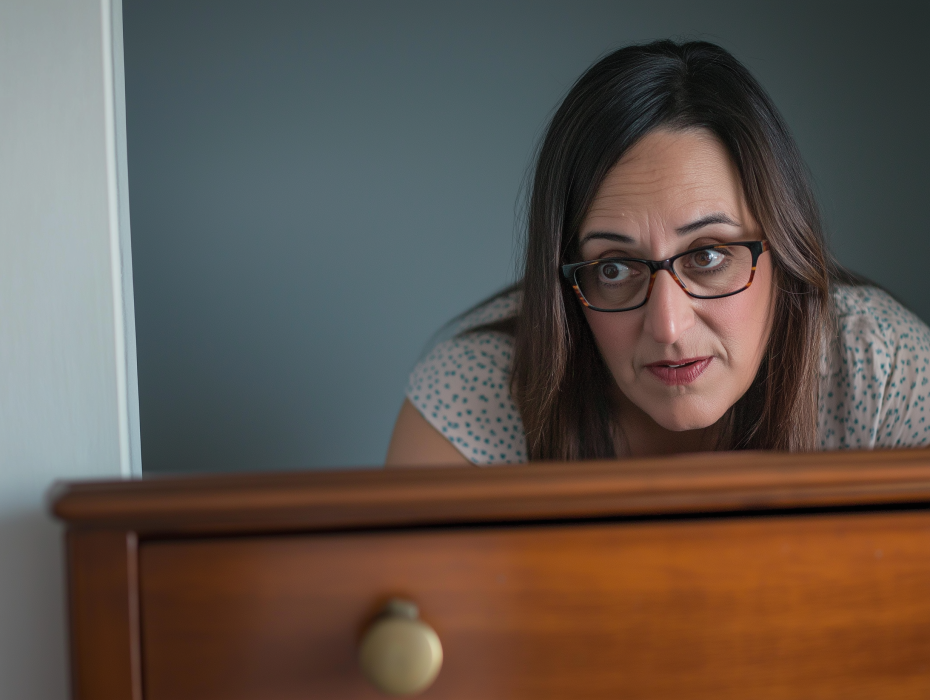
We couldn’t deny she was thriving. Her grades improved, voice steadied, and confidence rocketed. She came home humming under her breath, as if some secret melody carried her. She looked more like herself and yet, entirely changed. Happiness should have comforted us. Instead, it unnerved us more.
Her independence arrived in quiet ways. She began budgeting, packing her own lunches, and speaking casually about long-term plans. “I might apply for that nonprofit internship,” she mentioned, as if future doors had suddenly swung open. We exchanged uneasy glances. Was this his influence, shaping her steps?

I struggled with my feelings. I wanted to feel proud, but the source of her newfound independence mattered. If it were her own direction, I’d celebrate. But what if it was this older man, molding her ideas, manipulating her thoughts, and guiding her path?
Martin grew silent and watchful. He scribbled down her return times and compared them with her class schedule. “She’s not lying about school,” he admitted grimly. “But she’s lying about everything else.” His words sank deep, a weight I couldn’t shake off. In my experience, truth half-told was more dangerous than outright lies.
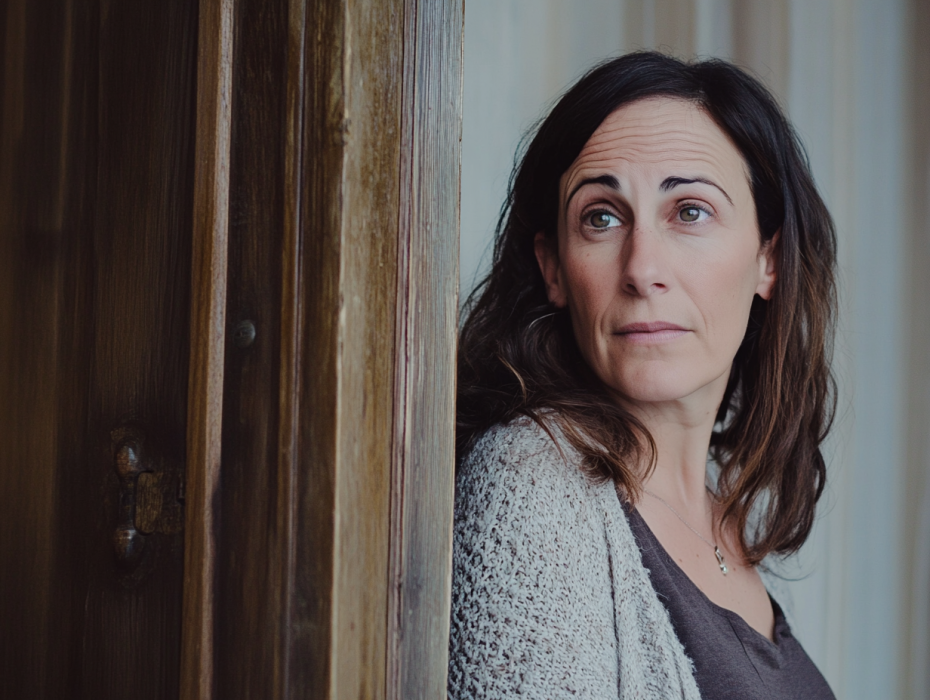
One night, I heard her whispering into her phone, her voice low and even. I caught only fragments: “Yes… I’ll be ready… I promise.” This was our daughter’s promise to a man we didn’t know. I froze in the hallway, terrified of stepping forward and shattering her fragile secret world.
Martin’s patience snapped. He followed her one damp afternoon, staying just far enough behind. She didn’t notice. At the café near the library, she sat with him. We discovered his name was Graham. They leaned over papers together, their heads nearly touching, voices low but intense.

He wasn’t touching her inappropriately, not even close, but his attention to her was total. He listened with unnerving focus, nodding at her words, guiding with his hand as he pointed to something written. To Martin, it looked intimate, respectable on the surface, but sinister beneath.
I expected Martin would’ve stormed inside, but he didn’t. He watched from outside, hands balled into fists. “He looks like he’s training her,” he said later. His voice shook. “Training her for what?” The question hung unanswered, more frightening than if we’d seen them kiss.
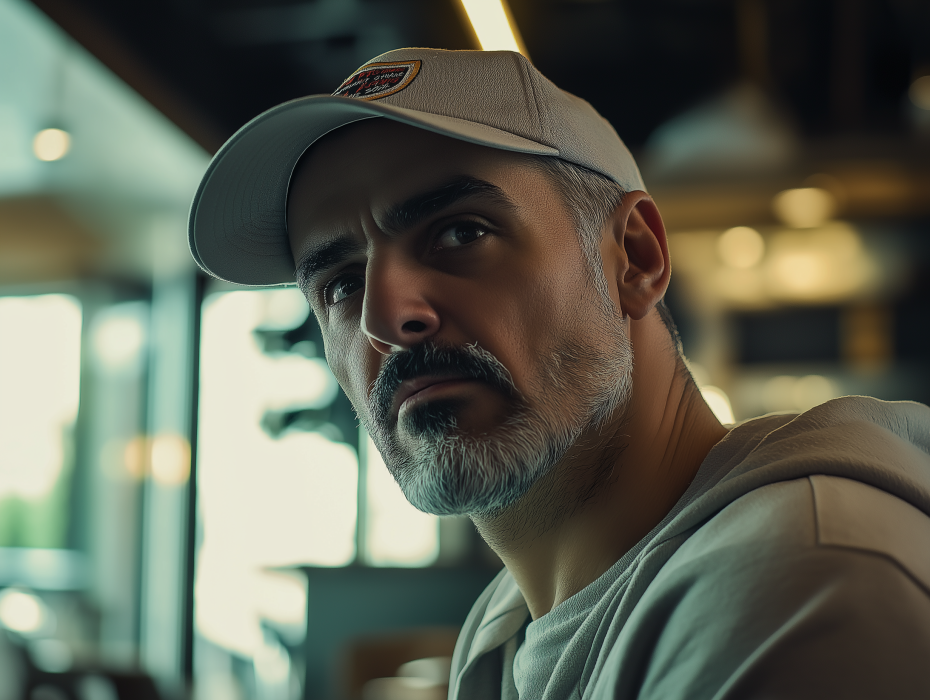
Every time Martin saw them together, he told himself he would get the proof, but it never came. There were some flashes: Graham’s hand sliding a paper across the table, her smile bright and trusting. But where was the impropriety, or scandalous gestures? The entire thing just made us suspect even more that intimacy came in many forms, and not all of them visible.
We pressed Nora directly. “Bring him home,” Martin urged one evening. “If he’s so important, let us meet him.” She froze, fork halfway to her mouth, then set it down. “Not yet,” she said. Her tone was soft but unyielding. “It’s not the right time.”

Martin’s anger flared. “If he’s good enough for you, he should be good enough for us,” he snapped. Nora’s eyes shone with unshed tears. “It’s not about good enough,” she whispered. “It’s timing, dad, and—.” She never completed that sentence. She pushed her chair back, leaving her dinner untouched. Silence followed.
We argued long after she locked her bedroom door. Martin wanted to drive to the café, and confront Graham face-to-face. “This ends now,” he said. I shook my head. “If you push, she’ll only run further. We’ll lose her entirely, don’t you see that?” My voice trembled with dread.

We tried to reclaim control the only way we knew how: rules. A stricter curfew, daily check-ins by text, and warnings about keeping us informed. Nora nodded politely, but the compliance was thin as paper. She followed just enough to avoid open rebellion, and no more.
When she did return on time, she carried herself with quiet triumph, as though proving obedience was a choice, not an obligation. The way she closed her bedroom door felt deliberate, a line drawn. Each lock on that door was a reminder she had a life we weren’t invited to share.

Our questions grew sharper. “What are you hiding from us?” I demanded one night. She looked at me with wet, defiant eyes. “You couldn’t begin to understand,” she said again, the same phrase over and over, like a shield held firmly against every accusation. It broke my heart.
Martin completely lost his temper at long last. His voice thundered through the house, rattling the windows. “You’re nineteen, not twenty-five or thirty! You don’t get to keep us in the dark!” Nora stood frozen, fists clenched at her sides. Then, with sudden fury, she replied, “I don’t need your permission to live my life.”

That night, she cried in her room, and I sat outside the door, helpless, the floor cold beneath me. Every sob tore through me, but when I whispered for her to talk, she only said softly, “If I tell you now, everything will fall apart.”
We became detectives in our own neighborhood, listening for scraps of gossip. And soon enough, the whispers arrived. Mrs. Holloway next door lowered her voice at the fence. “I saw Nora downtown, with a man much older. Looked serious.” Concern painted her face, apparently, but we knew judgment bled through her words.

The shame clung like smoke. Every glance from neighbors seemed weighted, and polite smiles seemed sharpened to dig into us. They imagined their own version of the story, and none of them was kind. I hated Graham more in those moments, for letting our daughter be branded by rumor and shadow.
At the grocery store, I overheard two women in the aisle whispering about “that Ainsworth girl” with the older man. My cheeks burned. I wanted to shout and defend her, but what could I say when I, too, didn’t know the truth? Silence was its own humiliation.

Martin carried the weight differently. He grew stiff, brittle, and angry at everything. When the mechanic called with a repair bill, he barked louder than necessary. When I left a dish unwashed, he slammed a cabinet. I knew the anger wasn’t about cars or dishes. It was about Nora and that man.
Our home became a war zone disguised as a family. Meals were tense, conversation sparse, laughter extinct. Nora smiled less; her light dimmed under the heaviness. Yet she still disappeared at regular intervals, slipping into that other world where Graham waited. We remained outside.

One evening, Martin confronted her directly. “Is he your boyfriend?” He spat out the last word like venom. Nora recoiled as though struck. “No,” she whispered fiercely. “Not like that.” His hands slammed the table. “Then tell us what it is!” She shook her head, tears rising. “I can’t. Not yet.”
I tried to soften the edge. “Sweetheart, is he hurting you? Forcing you?” Her eyes widened in horror. “No! Never!” She hugged herself, trembling. “He’s… he’s helping me. You’ll understand one day, but not right now.” The cryptic answer only deepened the ache.

Rumors spread faster than the truth. By the weekend, Martin’s colleague asked, half-joking, if Nora was “dating that older man around town.” Martin came home shaking, humiliated. “They’re talking about her, Elise. They think we’ve lost control.” His voice cracked. It wasn’t just about her anymore. It was about us, how others saw us.
Martin began plotting again. “I’ll confront him,” he said, eyes sharp with resolve. “Man to man. Let’s see what he says when I demand answers.” The thought of it terrified me. “You’ll only embarrass her,” I whispered. “She’ll never forgive us if you do that.”

We argued late into the night, his fury weighed against my fear. Neither of us slept, both staring at the ceiling, imagining Nora’s life folding in directions we couldn’t control. The man had become a shadow in our marriage, a third presence at every meal and conversation.
By then, the secrecy had become unbearable. Every evening stretched tight with suspicion, every morning began with unspoken questions. We were a family fraying at the seams, unraveling thread by thread, while our daughter clutched her secret tighter, as if the entire weight of it might collapse if revealed too early.

The days blurred into brittle silences and sudden bursts of shouting. Martin drafted speeches in his head, rehearsing the words he would unleash when he finally stood before the man. I watched him mutter over dishes, when out of the bathroom, or pacing the hall. His fury was a storm begging for release.
Nora sensed it too. She moved more cautiously at home, footsteps softer, and tone gentler, as if soothing a wounded animal. Yet she never relented. Every time we demanded answers, she repeated the same refrain: “Please. Give me some time. If you knew now, it would ruin everything.”

The neighbors grew bolder with their questions. A woman at church leaned in after the service. “I hear Nora’s seeing someone,” she whispered. “Older. Is she… safe?” I forced a smile, lying through my teeth. Safe. The word stung, because safety wasn’t what haunted me—it was trust, unraveling thread by thread.
One evening, Martin slammed his hand against the table. “This ends tonight. Either she tells us the truth, or I walk straight to him and demand it myself.” His voice was hoarse with desperation. I flinched. Nora looked stricken, pale, as though she had dreaded this moment for months.

Her eyes brimmed with tears as she stood. “Fine,” she whispered. “You want the truth? Then you’ll have it. But you have to promise me, you’ll listen all the way through before saying anything. You will not interrupt or judge me.” Her words trembled, but her spine held steady. She looked older than nineteen in that moment.
Martin nodded stiffly, jaw clenched. I whispered my agreement. Nora breathed out, shaky, as though releasing a secret she had been guarding with her whole body. “Then you can meet him,” she said softly. “But only if I’m there too. Only if you let me speak first.”

That night before the meeting, Martin lay awake, his fists opening and closing against the sheets. “What if she’s lying? What if he manipulates her right in front of us?” His voice cracked under the weight of his own fear. I had no answer, because dread was working its way up my gut, too.
When the day came, I felt sick, my body buzzing with unease. We arrived early, hearts pounding, rehearsing accusations and questions. And then the door opened. Graham entered quietly, composed, neither afraid nor triumphant. Nora was at his side, her hand trembling slightly. And then she began.

Nora’s voice trembled at first, but steadied quickly. “You’ve both imagined the wrong thing,” she said. “Graham isn’t my boyfriend. He isn’t some stranger trying to take me away.” She looked at us, eyes glistening. “He’s my biological father. The donor. I applied to the agency with a request after I turned eighteen.”
The room went silent, as though air itself had been pulled away. Martin blinked, then shook his head, speechless. My heart lurched wildly. Graham didn’t speak or try to defend. He only bowed his head, allowing Nora to reveal the truth in her own way. Our fear was twisted into something entirely different.

Nora’s words spilled out, urgent and fragile. “I didn’t tell you because I was afraid you’d think I wasn’t grateful. That you’d feel like your love wasn’t enough. But I needed to know where I came from. And I didn’t want to replace you both—never! I wanted to understand the other half of my being better.”
Tears stung my eyes. I remembered the multiple fertility clinic visits, the forms, the way Martin had squeezed my hand when we agreed to sperm donor anonymity. We had promised never to ask, or know. And though we had told Nora, when she turned fifteen, we never imagined she or we would meet the man whose contribution we’d buried under love and silence.

Martin’s jaw worked soundlessly before he finally rasped, “And you—why did you meet her in secret? Why didn’t you just come to us?” His voice wavered between accusation and plea. Graham finally lifted his gaze. “Because she is an adult and asked me to honor her pace. And because I knew this wasn’t mine to announce.”
Nora reached for my hand. “I didn’t want to hurt you,” she whispered. “I thought if you knew too soon, it would feel like betrayal. I wanted to wait until I was sure of who he was and I could show you he was worthy of bringing to you.”
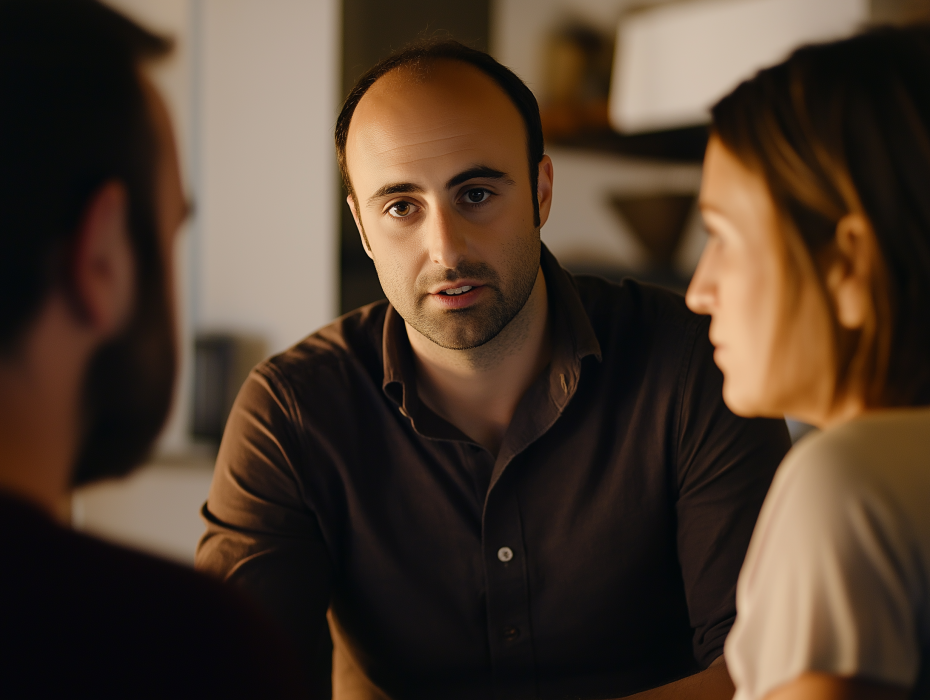
Graham’s voice was calm. “I never sought her out. She came to me. I told her from the beginning that you, her parents, were her true family. My role was only to answer her questions. We shared some common love for literature, poetry, and music. But my only aim has been to stand where she asked me to, and no further.” His genuine sincerity filled the room.
The relief was sharp and almost painful. He was not the lover we’d imagined, nor the predator we’d feared. He was merely a man abiding by a long-ago choice, standing awkwardly in the present because our daughter had sought him out. My anger ebbed, replaced by a strange, raw ache.
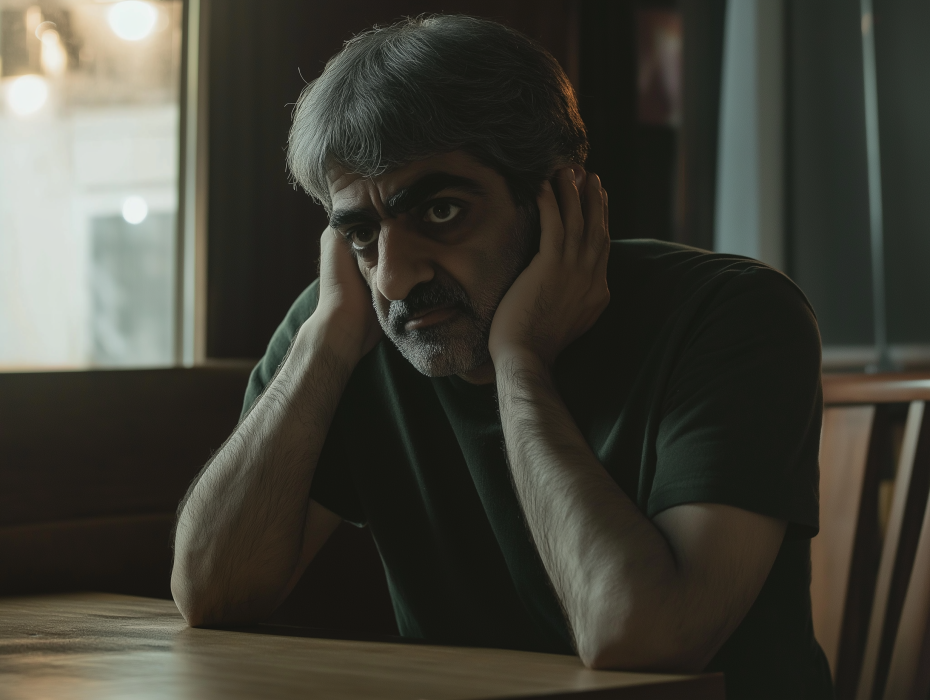
Martin’s shoulders sagged. He covered his face with his hands. “All this time,” he whispered, “we thought we were losing you.” Nora leaned closer, her eyes fierce with love. “You weren’t losing me,” she said. “I just didn’t know how to bring you with me into all this.”
We sat together then, awkward, quiet, and trembling, as the pieces rearranged themselves to form a new picture. There was no predator to fight or protect our daughter from, only the unsteady truth of bloodlines and identity. Relief tangled with grief, but beneath it all was love, bruised but intact, waiting for forgiveness to settle.

Later that night, back home, Martin and I sat in silence as the clock ticked. For the first time in months, there were no shadows of suspicion, only the fragile light of truth. Our daughter had not been stolen. She had been searching. And at last, she had let us in on her answers.
